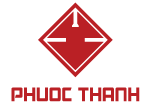
Professtional Manner In Work And Team Work Skill June, 2020
PROFESSTIONAL MANNER IN WORK AND TEAM WORK SKILL – JUNE, 2020
What is professionalism?
– Professionalism is a consistent synchronization from idea to implementation method to achieve the set goals. Professionalism is shown through a scientific working manner combining with mastery of professional knowledge. In short, professionalism includes work, conduct, goals and qualities.
– Regardless of the position, every individual wants to build his own image called “professional”. In today’s dynamic and modern working environment, professionalism is considered as one of the top criteria determining the success of an enterprise or the ability of an individual’s promotion. So, to become more and more professional, do not hesitate to learn from your superiors, senior colleagues or even your subordinates. You will gain invaluable lessons and experiences from this effort.

No matter what position you are in, constant learning is essential for continuous improvement and reaching a peak. Life, the level of constant information technology development with the requirements of the work will be increasingly stricter and more diverse. If you do not equip yourself with the knowledge appropriate to the times, it will inevitably be eliminated because of the lag, out of date.
–Features of professionalism: There are 07 following characteristics:
- First: Professional knowledge
Professional workers must have a deep understanding of the profession, understand and master the levels of work and skills within the occupation. Professional staff can solve a number of seemingly very complex issues turning into simple, the main reason is that they have grasped the basic working principle. Society is constantly developing, especially in the era of science and technology. There are more and more new scientific and technological advances, new industries, more complex and more diverse jobs. That requires professional workers to constantly study and train for professional expertise to be able to adapt and face new knowledge.
- Second: Talent, ability
– They have the skills to complete a job neat, normative, and agile. Lack of professionalism can do the job but their “output” is not nice, not neat, or generally not good enough. Professional people never blame “at, because of” but find the best solution to get the job done.
- Third: Integrity
– Integrity in both daily behavior and professional ethics. Professional people who keep their promises, they say and do it right away. On the contrary, the lack of professionalism is unreliable, because the promise does not go hand in hand with the job, and they lack self-esteem.
- Fourth: Responsibility spirit
– Professionals are responsible for their thoughts, statements and actions. Responsibility for the work shown on every result, product. Errors, mistakes in spelling, sloppy presentation, and misleading sentences in a document are enough to show the lack of responsibility of a text editor. A product defect has been discovered, but ignored and still launch into the market, most likely to lead to discrediting, the boycott of business products. At work, many people often justify their jobs, without acknowledging their responsibilities, with words such as: “My qualifications are limited”, “I tried”, “Such wages. I can only do that. “… a professional person who is always ready to face difficulties, concentrate, and try to solve problems. Hiding mistakes, avoiding hard work, pushing jobs for others, blame at circumstances is the working attitude of amateurs. Professionalism comes from the sense of the person who works for the obligations and responsibilities to the organization, the company, the colleagues, and himself.
- Fifth: Self-control
– People with high professionalism can hold their own under great pressure. For example, before the boss’s scolding, the reflections of the employees, they still calmly explained and served, not “argument”. Professionals have the ability to refrain from falling into the details or fallacies of others.
- Sixth: Respect others
– Professionals always respect their colleagues and the people around them, regardless of their position in society. Respecting colleagues also means not speaking badly, and absolutely not insulting colleagues. Nobel laureate Peter Doherty advises that if there is nothing good to say about a colleague, be quiet. Behaviors such as abusive workers and colleagues are more unethical than uneducated. Professionals have a high level of “emotional intelligence” and do not let their status affect them. You will have to work with people you don’t care about, even those who aren’t very comfortable. You will show more professionalism if you don’t let them know what you are thinking about them, but instead are friendly, polite and easy to work with. A professional is someone who is confronted with someone he doesn’t like as normal as nothing.
- Seventh: Image and apperance
– Clothes that match the nature of the work, show the professional working style, create confidence for partners. Each job, each working environment has its own outfit requirements suitable to the working conditions as well as the characteristics of that job. Not only that, the costume also helps convey the characteristics of the business to partners, creating a vivid image of the corporate culture in the eyes of the people. Professionals appear in neat, unflattering attire, not too formal but appropriate for the situation, and polite. Appearing with outrageous clothes, lack of neat, too fussy not only lack of professionalism but also be understood to look down on the opposite person.

– In life, anyone of us, more than once behaved less professionally. Maybe it’s times of being too busy, poor thinking, immature, aggressive, angry, generally wrong. But if we are humble enough, we all have the opportunity to correct ourselves. You need to combine hard and soft skills to create a professional attitude in the way of communication and working.
What is teamwork?
Teamwork is a group of 2 people who work together to accomplish a common goal based on interaction and responsibility.

Common problems encountered when working in teamwork:
- Raising opinions, distracting when meeting
- No face to face
- The group is overwhelmed by disagreements
Important skills needed for teamwork
o Listen to others
o Organizational skills
o Help and respect each other
o Responsible for the work assigned
o Encouragement and personal growth
o Mounts
o Create consensus.
o Impartial
– When working in a group will certainly bring more efficiency than an individual, let’s work together, unite and treat each other as close brothers and good friends to ensure safety for employees and offer the best products.

– Professionalism is an increasingly practical requirement in life, so if you do not want to be eliminated, right now you should start planning to build your image of a true professional employee!
The Safety Department of the Company wishes all of you a month filled with joy and solidarity together to achieve the Safety – Quality – Progress goals which the company has set.
By: Phuoc Thanh Company’s Safety Department









